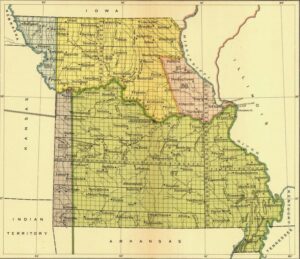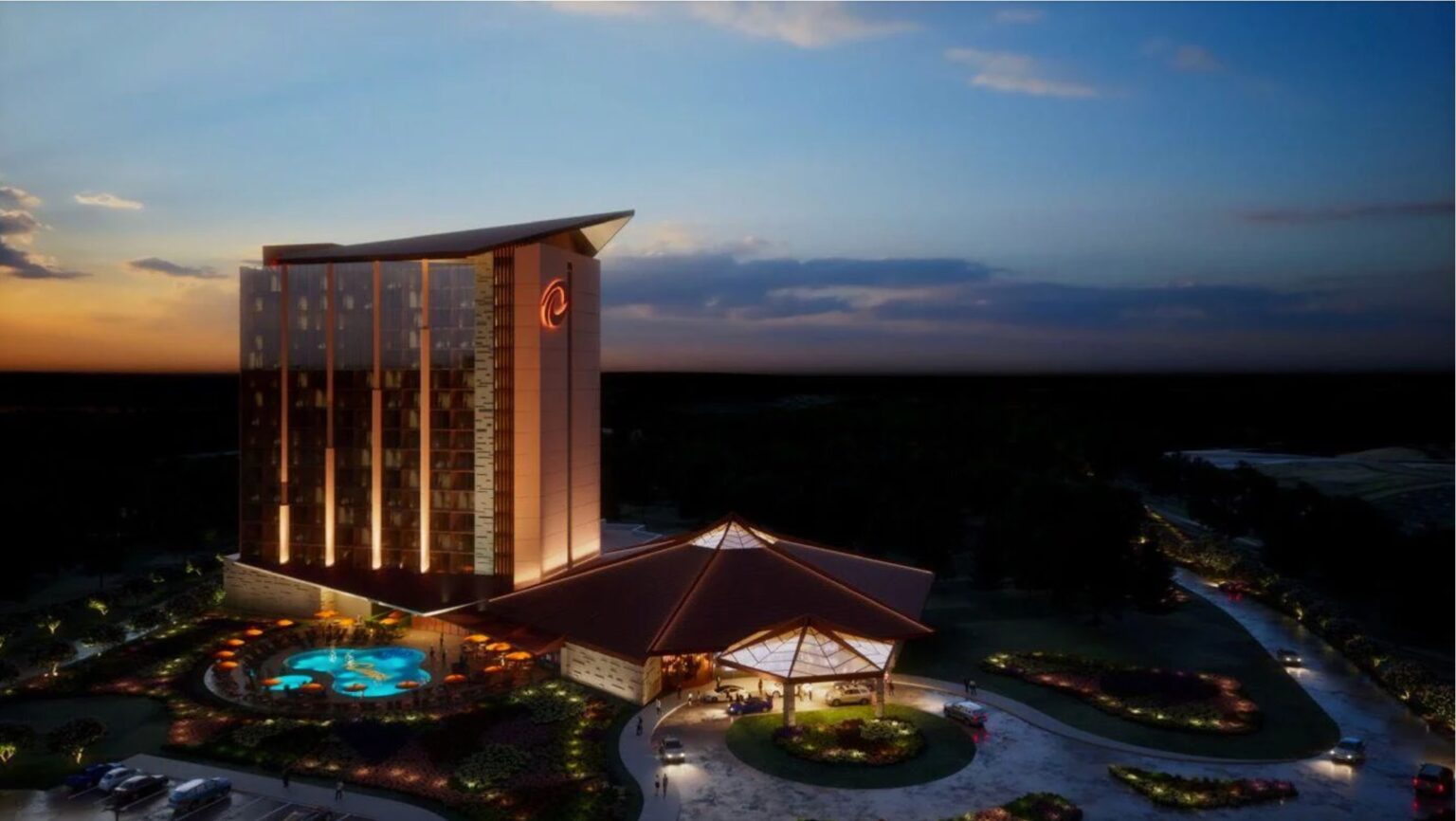16:18
News Story
Osage Nation planning casino, hotel for Missouri’s Lake of the Ozarks
Miller County gambling complex would cost $60 million, require state-tribal compact and federal approval
The Native American tribe that gave its name to the Osage River wants to bring casino gambling to the Lake of the Ozarks, the biggest tourist draw on that river.
The Osage Nation Indian Tribe on Friday announced in a news release that it will invest approximately $60 million to develop a hotel featuring gambling, restaurants and entertainment venues. The release said the casino will be in Miller County but did not specify an exact location.
“We have established very good relationships with several communities in Missouri and seek to have a presence back in our homeland,” Osage Nation Tribe Chief Geoffrey Standing Bear said in the release.
The tribe has been looking at investments in Missouri since at least 2017, when it hired former House Speaker Steve Tilley as a lobbyist and contributed $52,000 to the inaugural fund of former Gov. Eric Greitens. At that time, Standing Bear said the tribe was considering locations along Interstate 44 in Cuba, Missouri, and in Kimberling City, near Branson, in southwest Missouri, in addition to Lake of the Ozarks.
The release quotes current and former lawmakers from the region, as well as tourism and economic development officials, as welcoming the project. State Sens. Mike Bernskoetter, R-Jefferson City, and Justin Brown, R-Rolla, both said they are happy to see new jobs come to the region.
Bernskoetter represents the counties on the north side of the lake and Brown represents counties on the south side.
“This is a tremendous opportunity for the Lake Region and our entire state,” Brown said. “I look forward to working with the Osage Nation, community leaders, and my colleagues in the Legislature to make this a reality and welcome the Nation home.”

The Osage Nation called the region that would become Missouri its home from before the establishment of English colonies in the area that became the United States. Most of the tribe’s Missouri lands, including the area south of the Missouri River, were ceded to the United States in a treaty signed in 1808.
There are no Indian reservations in Missouri, so the steps between issuing the press release Friday and the opening of the casino could take several years.
Any land purchased would have to be put into a trust for the nation by the Department of the Interior. And the nation must negotiate a compact with the state dividing responsibilities for law enforcement on the casino property and establishing “taxation by the Indian tribe of such activity in amounts comparable to amounts assessed by the state for comparable activities.”
Gov. Mike Parson, or his successor, would have to approve the compact, according to federal law.
Tribes have the right to offer gambling that mirrors what the state allows “for any purpose by any person, organization, or entity.”
If the state refuses to negotiate a compact, or does not do so in good faith, the tribe may sue in federal court.
The Missouri Gaming Commission, which regulates the 13 licensed casinos operating in the state, has not discussed the proposed casino, Chairman Mike Leara said in an interview Friday afternoon with The Independent.
“There are still a lot of hurdles that are quite large, I would suspect,” Leara said. “Having legislative support is probably helpful to their cause, but I don’t think it gets them over the line.”
The Missouri Constitution limits the state to 13 casino licenses and requires them to be located along the Missouri and Mississippi rivers. Casinos pay 21 percent of their net revenues to the state, money that is earmarked for public schools and higher education.
The casinos recorded 27.6 million admissions in the 12 months that ended June 30 and paid $362.5 million in taxes.
According to the news release, the project will be a boon to tourism at the Lake, already popular as a summer destination. The release stated that 90 percent of the workforce employed at similar facilities operated by Osage Nation are non-tribal members.
Tourism in Miller County generates almost $41 million in economic activity and provides almost 700 jobs, the release stated, citing data from the state Tourism Division. In adjacent Camden County, tourism is responsible for $187 million in economic activity and almost 4,000 jobs.
Former state Rep. Rocky Miller, R-Lake Ozark, is quoted in the release as saying he supports projects that will bring jobs to the region.
He is not worried that the casino would pull revenue from other recreation venues already operating in the lake area, Miller said in an interview.
“I think it makes a bigger pie,” Miller said. “My family has been here 161 years. My great-grandfather worked on the Bagnell Dam project. The area has always been about growth and this is just another method of growth, in my opinion.”
Our stories may be republished online or in print under Creative Commons license CC BY-NC-ND 4.0. We ask that you edit only for style or to shorten, provide proper attribution and link to our website. AP and Getty images may not be republished. Please see our republishing guidelines for use of any other photos and graphics.





